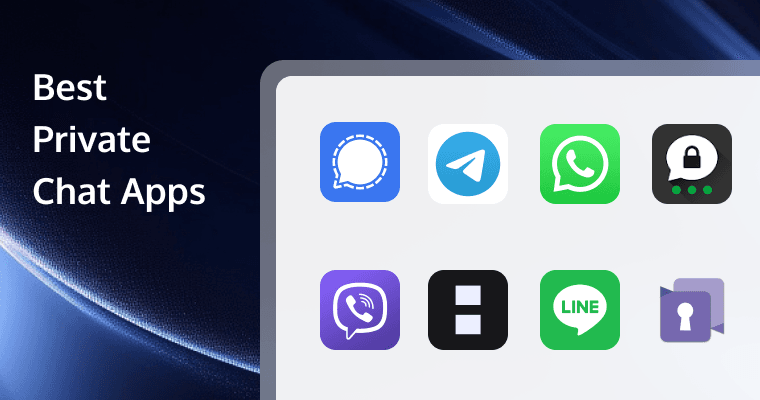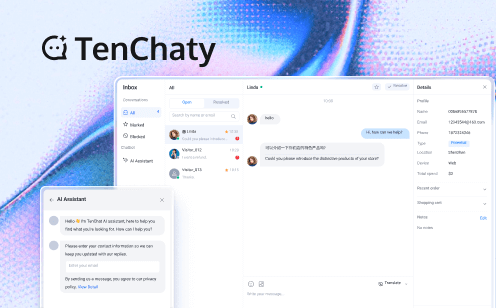In today's interconnected world, communication plays a vital role in our personal and professional lives. With the advent of messaging apps, private chat has become increasingly popular, offering users a secure and confidential way to connect with others. In this article, we will explore the benefits and significance of private chat, highlighting how it enhances communication and privacy in the digital age.

What is Private Chat?
Private chat refers to a messaging feature that allows users to have one-on-one or group conversations in a private setting. It typically involves encryption and security measures to protect the privacy of the messages exchanged. Platforms like Snapchat and Instagram offer private chat features, enabling users to communicate with their selected contacts privately.
Benefits of Private Chat
1. Enhanced Privacy
Private chat ensures that conversations remain confidential and are only accessible to the intended recipients. This feature is particularly valuable when discussing sensitive or personal matters.
2. Selective Sharing
Private chat allows users to choose who they communicate with, ensuring that their messages are seen only by the intended recipients. This level of control over communication helps maintain a sense of trust and security.
3. Personalization
Private chat often includes additional features like voice and video calls, photo sharing, and stickers, enabling users to personalize their conversations and make them more engaging.

Top 8 Private Chat Apps in 2024
Signal
Signal is renowned for its end-to-end encryption, ensuring that only the sender and recipient can access the messages. It also offers self-destructing messages and supports voice and video calls, making it a comprehensive private chat app.
Pros:
- Strong Security: Signal is known for its robust security features, including end-to-end encryption for all messages, calls, and media shared on the platform.
- Privacy-Focused: Signal collects minimal user data and has a strong commitment to user privacy, making it a popular choice for those concerned about data privacy.
- Open Source: Signal's code is open source, allowing for transparency and community scrutiny to ensure the platform's security and privacy standards.
- Self-Destructing Messages: Signal offers a feature to set messages to automatically disappear after a specified time, adding an extra layer of privacy.
- Cross-Platform Compatibility: Signal is available for iOS, Android, and desktop, allowing users to communicate seamlessly across different devices.
Cons:
- Smaller User Base: Signal has a smaller user base compared to other messaging apps, which may limit the number of contacts available for communication.
- Limited Features: While Signal focuses on security and privacy, it may lack some of the advanced features found in other messaging apps.
- No Cloud Backup: Signal does not offer cloud backup for messages, which means users may lose their chat history if they switch devices or reinstall the app.
Telegram
Telegram provides a combination of security and versatility. It offers secret chat features with self-destructing messages, as well as encrypted group chats. Telegram also supports file sharing and has a user-friendly interface.
Pros:
- Versatile Features: Telegram offers a wide range of features, including end-to-end encryption for secret chats, large group chats, file sharing, and self-destructing messages.
- Cloud-Based: Telegram stores messages and media on the cloud, allowing users to access their chat history across multiple devices.
- Bot Integration: Telegram supports bot integration, enabling users to automate tasks, receive notifications, and access various services within the app.
- Large User Base: Telegram has a large and active user base, providing users with a wide network of contacts for communication.
- Customization Options: Telegram allows users to customize the app's appearance, create themes, and use stickers and GIFs to personalize their conversations.
Cons:
- Encryption for Regular Chats: While Telegram offers end-to-end encryption for secret chats, regular chats are only encrypted in transit, meaning messages can be accessed by Telegram or third parties.
- Privacy Concerns: Telegram has faced criticism for its privacy practices, including the storage of user metadata and its potential vulnerability to government surveillance.
- Limited Moderation: Telegram's focus on privacy and encryption has led to concerns about the platform being used for illegal activities, as it provides limited moderation and content control.
WhatsApp is a widely used private chat app that offers end-to-end encryption for all messages, calls, photos, and videos. It also provides features like voice and video calls, group chats, and multimedia sharing.
Pros:
- Wide User Base: WhatsApp has a massive user base, making it easy to connect and communicate with a large network of contacts.
- End-to-End Encryption: WhatsApp offers end-to-end encryption for all messages, calls, and media shared on the platform, ensuring privacy and security.
- Multimedia Sharing: WhatsApp supports various media formats, including photos, videos, documents, and voice messages, making it convenient for sharing different types of content.
- Cross-Platform Compatibility: WhatsApp is available for iOS, Android, and desktop, allowing users to communicate seamlessly across different devices.
- Integration with Phone Contacts: WhatsApp automatically syncs with a user's phone contacts, making it easy to find and connect with friends and family.
Cons:
- Facebook Ownership: WhatsApp is owned by Facebook, which raises concerns about data privacy and the potential sharing of user data with the parent company.
- Limited Customization: WhatsApp offers limited customization options compared to other messaging apps, with fewer options for personalizing the app's appearance.
- No Multiple Account Support: WhatsApp does not support multiple accounts on a single device, which can be inconvenient for users who need to manage multiple phone numbers or accounts.
Threema
Threema is a private chat app that prioritizes user privacy. It offers end-to-end encryption, anonymous sign-up, and no phone number or email address requirement. Threema also supports voice calls, group chats, and media sharing.
Pros:
- Strong Security: Threema is known for its robust security features, including end-to-end encryption for all messages, calls, and media shared on the platform.
- Privacy-Focused: Threema collects minimal user data and does not require a phone number or email address for registration, ensuring a high level of privacy.
- Anonymous Sign-Up: Threema allows users to sign up without providing personal information, offering an additional layer of anonymity.
- Group Chats and Voice Calls: Threema supports group chats and voice calls, allowing users to communicate with multiple contacts simultaneously.
- Cross-Platform Compatibility: Threema is available for iOS, Android, and desktop, enabling users to communicate seamlessly across different devices.
Cons:
- Smaller User Base: Threema has a smaller user base compared to other messaging apps, which may limit the number of contacts available for communication.
- Paid App: Threema is a paid app, which may deter some users who prefer free messaging apps.
- Limited Features: Threema focuses primarily on security and privacy, which means it may lack some of the advanced features found in other messaging apps.
Viber
Viber is a private chat app that provides end-to-end encryption for messages, calls, and media sharing. It offers features like self-destructing messages, hidden chats, and secret stickers. Viber also supports voice and video calls.
Pros:
- End-to-End Encryption: Viber offers end-to-end encryption for all messages, calls, and media shared on the platform, ensuring privacy and security.
- Voice and Video Calls: Viber supports high-quality voice and video calls, allowing users to communicate with contacts around the world.
- Multimedia Sharing: Viber allows users to share various media formats, including photos, videos, documents, and voice messages.
- Cross-Platform Compatibility: Viber is available for iOS, Android, and desktop, enabling users to communicate seamlessly across different devices.
- Public Chats: Viber offers public chat features, allowing users to follow and engage with their favorite brands, celebrities, or communities.
Cons:
- Limited Customization: Viber offers limited customization options compared to other messaging apps, with fewer options for personalizing the app's appearance.
- Dependency on Phone Number: Viber requires users to have a valid phone number to create an account, which may limit anonymity for some users.
- Ads and Promotions: Viber displays ads and promotional content within the app, which can be intrusive for some users.
Dust
Dust is a private chat app that emphasizes privacy and anonymity. It offers end-to-end encryption, self-destructing messages, and secure file sharing. Dust also includes a "Erase All" feature that allows users to delete all their messages from both devices.
Pros:
- Strong Security: Dust offers end-to-end encryption for all messages, calls, and media shared on the platform, ensuring privacy and security.
- Self-Destructing Messages: Dust allows users to set messages to automatically disappear after a specified time, adding an extra layer of privacy.
- Secure File Sharing: Dust provides secure file sharing capabilities, allowing users to exchange files without compromising their privacy.
- No Permanent Message Storage: Dust does not store messages on its servers, ensuring that conversations are not accessible once they are deleted.
- Anonymous Sign-Up: Dust allows users to sign up without providing personal information, offering an additional layer of anonymity.
Cons:
- Smaller User Base: Dust has a smaller user base compared to other messaging apps, which may limit the number of contacts available for communication.
- Limited Features: Dust may lack some of the advanced features found in other messaging apps, focusing primarily on security and privacy.
- Dependency on Phone Number: Dust requires users to have a valid phone number to create an account, which may limit anonymity for some users.
Silence
Silence is a private chat app that focuses on secure messaging. It offers end-to-end encryption, self-destructing messages, and encrypted voice calls. Silence also allows users to send encrypted SMS messages to non-Silence users.
Pros:
- Strong Security: Silence offers end-to-end encryption for all messages, ensuring privacy and security.
- SMS Encryption: Silence encrypts SMS messages, allowing users to communicate securely even with contacts who do not have the Silence app.
- No Server Storage: Silence does not store messages on its servers, ensuring that conversations are not accessible once they are deleted.
- Lightweight and Fast: Silence is known for its lightweight and fast performance, making it suitable for users who prefer efficiency.
- Open Source: Silence's code is open source, allowing for transparency and community scrutiny to ensure the platform's security and privacy standards.
Cons:
- Limited Features: Silence focuses primarily on security and encryption, which means it may lack some of the advanced features found in other messaging apps.
- Dependency on SMS: Silence relies on SMS for communication, which may incur additional charges for users who do not have unlimited SMS plans.
- Smaller User Base: Silence has a smaller user base compared to other messaging apps, which may limit the number of contacts available for communication.
Line
Line is a private chat app that provides end-to-end encryption for messages, voice calls, and video calls. It offers features like self-destructing messages, hidden chats, and secure file sharing. Line also includes a timeline feature for sharing updates with friends.
Pros:
- Versatile Features: Line offers a wide range of features, including messaging, voice and video calls, stickers, games, and a timeline for sharing updates.
- Large User Base: Line has a large and active user base, providing users with a wide network of contacts for communication.
- Multimedia Sharing: Line allows users to share various media formats, including photos, videos, documents, and voice messages.
- Cross-Platform Compatibility: Line is available for iOS, Android, and desktop, enabling users to communicate seamlessly across different devices.
- Integration with Services: Line integrates with various services, including shopping, news, and entertainment, providing users with a comprehensive platform.
Cons:
- Privacy Concerns: Line has faced criticism for its privacy practices, including the collection of user data and potential sharing with third-party partners.
- Ads and Promotions: Line displays ads and promotional content within the app, which can be intrusive for some users.
- Dependency on Phone Number: Line requires users to have a valid phone number to create an account, which may limit anonymity for some users.
Develop a private chat app using Tencent RTC Chat
Tencent RTC Chat provides robust chat APIs, SDKs, and UIKit components to create real-time social messaging features in your applications. The key features are as follows:
- Interactive and immersive user experience with our social features and rich media types
- Keep the conversations going even when users are offline through offline push
- Increases user retention through powerful one-to-one chat and group chat features
- Ensure effective communication via features such as combined messages and recall messages
If you have any questions or need assistance online, our support team is always ready to help. Please feel free to Contact us or join us on Telegram or Discord.


